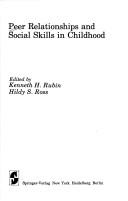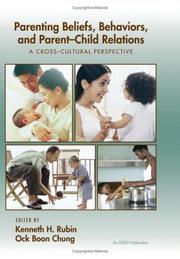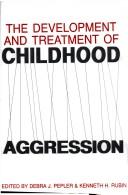| Listing 1 - 9 of 9 |
Sort by
|

ISBN: 0387906991 1461381827 1461381800 Year: 1982 Publisher: New York
Abstract | Keywords | Export | Availability | Bookmark
 Loading...
Loading...Choose an application
- Reference Manager
- EndNote
- RefWorks (Direct export to RefWorks)
Developmental psychology --- Age group sociology --- Social psychology --- Age groups. --- Child development. --- Friendship. --- Social interaction. --- Social skills in children. --- Ontwikkelingspsychologie --- sociale en morele ontwikkeling --- sociale en morele ontwikkeling.
Book
ISBN: 9781609181864 Year: 2011 Publisher: New York (N.Y.) Guilford
Abstract | Keywords | Export | Availability | Bookmark
 Loading...
Loading...Choose an application
- Reference Manager
- EndNote
- RefWorks (Direct export to RefWorks)

ISBN: 184169438X Year: 2006 Publisher: New York, NY ; Hove, East Sussex, UK : Psychology Press,
Abstract | Keywords | Export | Availability | Bookmark
 Loading...
Loading...Choose an application
- Reference Manager
- EndNote
- RefWorks (Direct export to RefWorks)
Identité collective --- Mythe --- Parents --- Relation familiale --- Relation parents-enfant --- Parenting. --- Rôle parental. --- Cross-cultural studies --- Etudes transculturelles

ISBN: 080580370X Year: 1991 Publisher: Hillsdale Erlbaum
Abstract | Keywords | Export | Availability | Bookmark
 Loading...
Loading...Choose an application
- Reference Manager
- EndNote
- RefWorks (Direct export to RefWorks)
#PBIB:2000.1 --- Aggressiveness in children --- Aggression --- Ontwikkelingspsychologie --- Congresses. --- in infancy & childhood --- congresses. --- speciale problemen --- speciale problemen. --- In infancy & childhood --- Speciale problemen. --- Aggressiveness (Child psychology) --- Aggressiveness (Psychology) in children --- Child psychology --- Conduct disorders in children --- Congresses
Book
ISBN: 3805535406 Year: 1982 Publisher: Basel : Karger,
Abstract | Keywords | Export | Availability | Bookmark
 Loading...
Loading...Choose an application
- Reference Manager
- EndNote
- RefWorks (Direct export to RefWorks)
Book
ISBN: 146253659X 146253662X Year: 2018 Publisher: New York ; London : The Guilford Press,
Abstract | Keywords | Export | Availability | Bookmark
 Loading...
Loading...Choose an application
- Reference Manager
- EndNote
- RefWorks (Direct export to RefWorks)
Presenting cutting-edge work from leading scholars, this authoritative handbook reviews the breadth of current knowledge on aggression from infancy through adolescence. The volume explores the forms and functions of aggression and the multiple factors that contribute to its emergence, development, and consequences, including genetic and biological influences, temperament, family dynamics, peer relations, and social inequality. It provides up-to-date perspectives on problems such as disruptive and defiant behaviors, bullying (including cyberbullying), social aggression, and youth violence, and examines relations between aggression and normative social-emotional and social-cognitive development. It also discusses the opposite end of the spectrum, including kindness and prosocial behaviors. Identifying important implications for practice and policy, contributors describe effective approaches to screening, assessment, and intervention in family, school, community, and clinical settings.
Aggressiveness in children. --- Aggressiveness in adolescence. --- Developmental psychology. --- Agressivité chez l'enfant. --- Agressivité chez l'adolescent. --- Psychologie du développement. --- Child --- Adolescent --- Aggression
Book
ISBN: 9781593854416 1593854412 9781609182229 Year: 2009 Publisher: New York : Guilford Press,
Abstract | Keywords | Export | Availability | Bookmark
 Loading...
Loading...Choose an application
- Reference Manager
- EndNote
- RefWorks (Direct export to RefWorks)
Interpersonal relations in children --- Interpersonal relations in adolescence --- Interpersonal relations in children. --- Interpersonal relations in adolescence. --- #SBIB:309H021 --- 316.45 --- Adolescent psychology --- Child psychology --- Intra- en interpersonele communicatie --- Sociale groepen. Groepsprocessen. Kleine groepen. Interactionele groepsdynamiek --- 316.45 Sociale groepen. Groepsprocessen. Kleine groepen. Interactionele groepsdynamiek --- Primary groups
Book
ISBN: 9781462541218 9781462525010 9781462533015 Year: 2018 Publisher: New York : The Guilford Press,
Abstract | Keywords | Export | Availability | Bookmark
 Loading...
Loading...Choose an application
- Reference Manager
- EndNote
- RefWorks (Direct export to RefWorks)
The definitive handbook on peer relations has now been significantly revised with 55% new material. Bringing together leading authorities, this volume presents cutting-edge research on the dynamics of peer interactions, their impact on multiple aspects of social development, and the causes and consequences of peer difficulties. From friendships and romance to social withdrawal, aggression, and victimization, all aspects of children's and adolescents' relationships are explored. The book examines how individual characteristics interact with family, group, and contextual factors across development to shape social behavior. The importance of peer relationships to emotional competence, psychological well-being, and achievement is analyzed, and peer-based interventions for those who are struggling are reviewed. Each chapter includes an introductory overview and addresses theoretical considerations, measures and methods, research findings and their implications, and future directions. (Source: cover)
Book
ISBN: 1462533019 Year: 2018 Publisher: New York, New York ; London, [England] : The Guilford Press,
Abstract | Keywords | Export | Availability | Bookmark
 Loading...
Loading...Choose an application
- Reference Manager
- EndNote
- RefWorks (Direct export to RefWorks)
The definitive handbook on peer relations has now been significantly revised with 55% new material. Bringing together leading authorities, this volume presents cutting-edge research on the dynamics of peer interactions, their impact on multiple aspects of social development, and the causes and consequences of peer difficulties. From friendships and romance to social withdrawal, aggression, and victimization, all aspects of children's and adolescents' relationships are explored. The book examines how individual characteristics interact with family, group, and contextual factors across development to shape social behavior. The importance of peer relationships to emotional competence, psychological well-being, and achievement is analyzed, and peer-based interventions for those who are struggling are reviewed. Each chapter includes an introductory overview and addresses theoretical considerations, measures and methods, research findings and their implications, and future directions. New to This Edition *Chapters on neuroscience, social media, social inequality, prosocial behavior with peers, and sociological approaches. *Expanded coverage of applied issues: chapters on interventions for socially withdrawn children, activity programs that promote positive youth development, and policy initiatives. *Chapters on same- and other-sex peer relationships, peer influence, educational environments, evolutionary models, the self-concept, personality, and animal studies. *Increased attention to variations in peer relations due to culture, gender, and race. *Many new authors and topics reflect a decade's worth of theoretical and methodological advances, including the growing use of complex longitudinal methods.
| Listing 1 - 9 of 9 |
Sort by
|

 Search
Search Feedback
Feedback About UniCat
About UniCat  Help
Help News
News